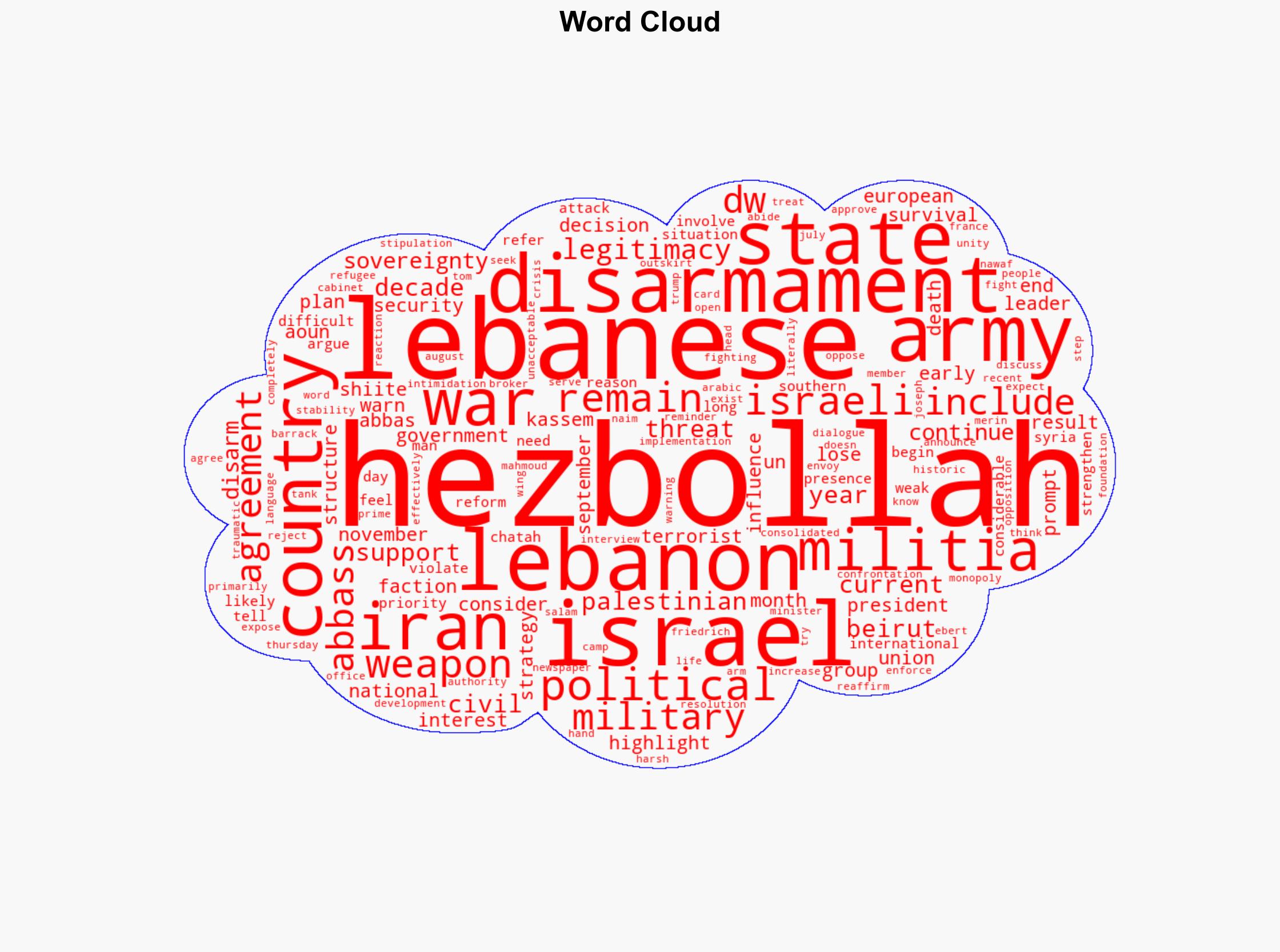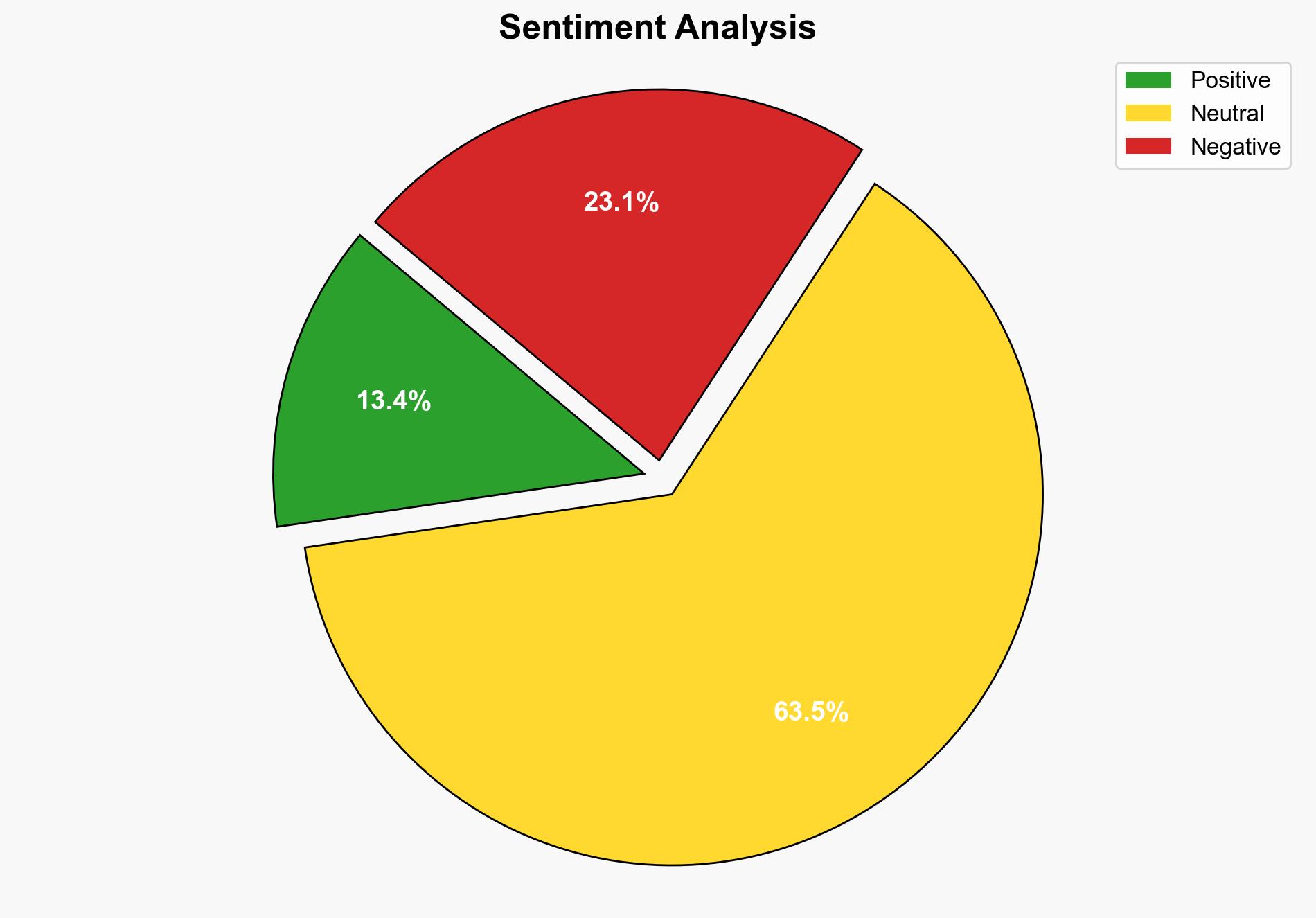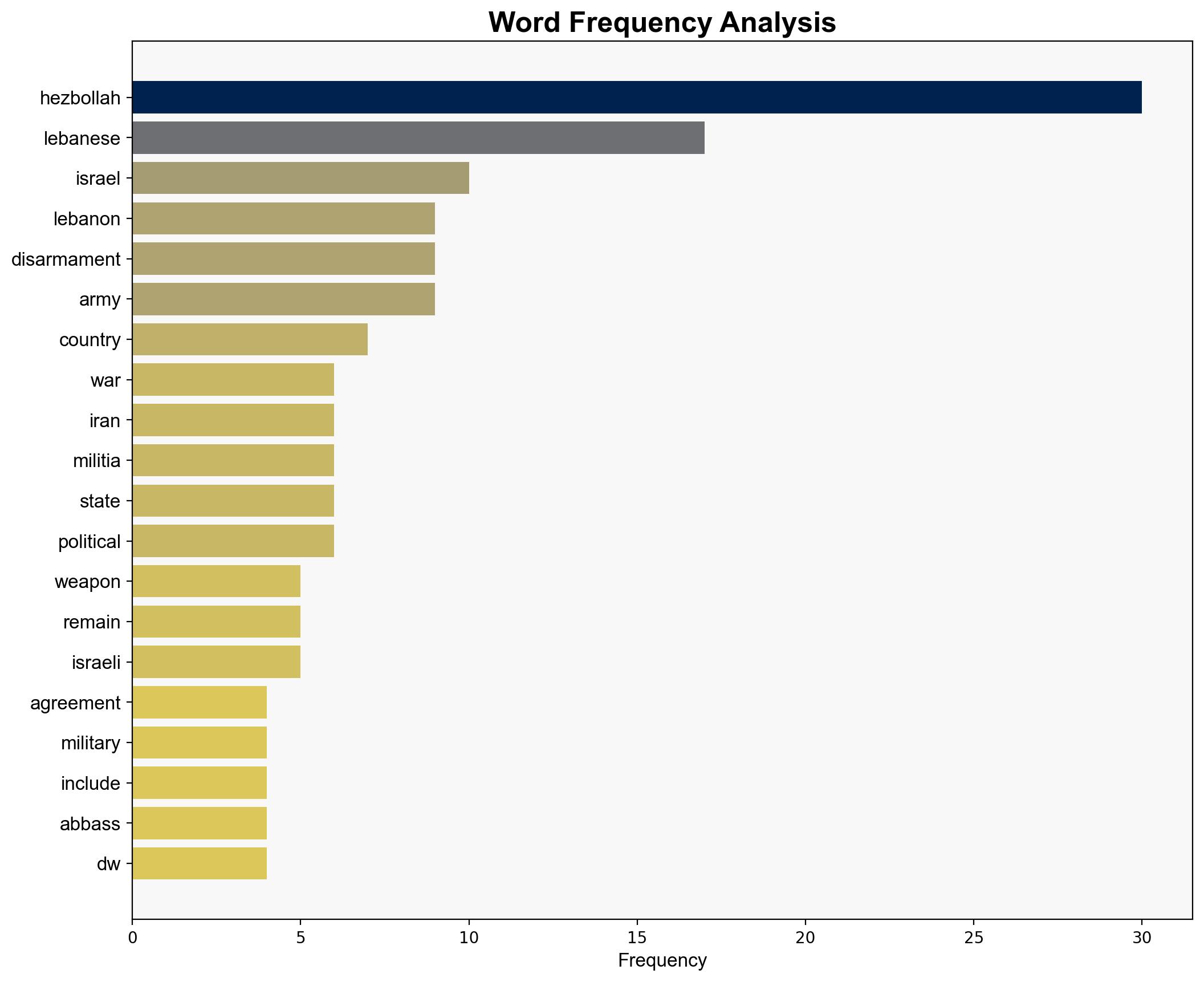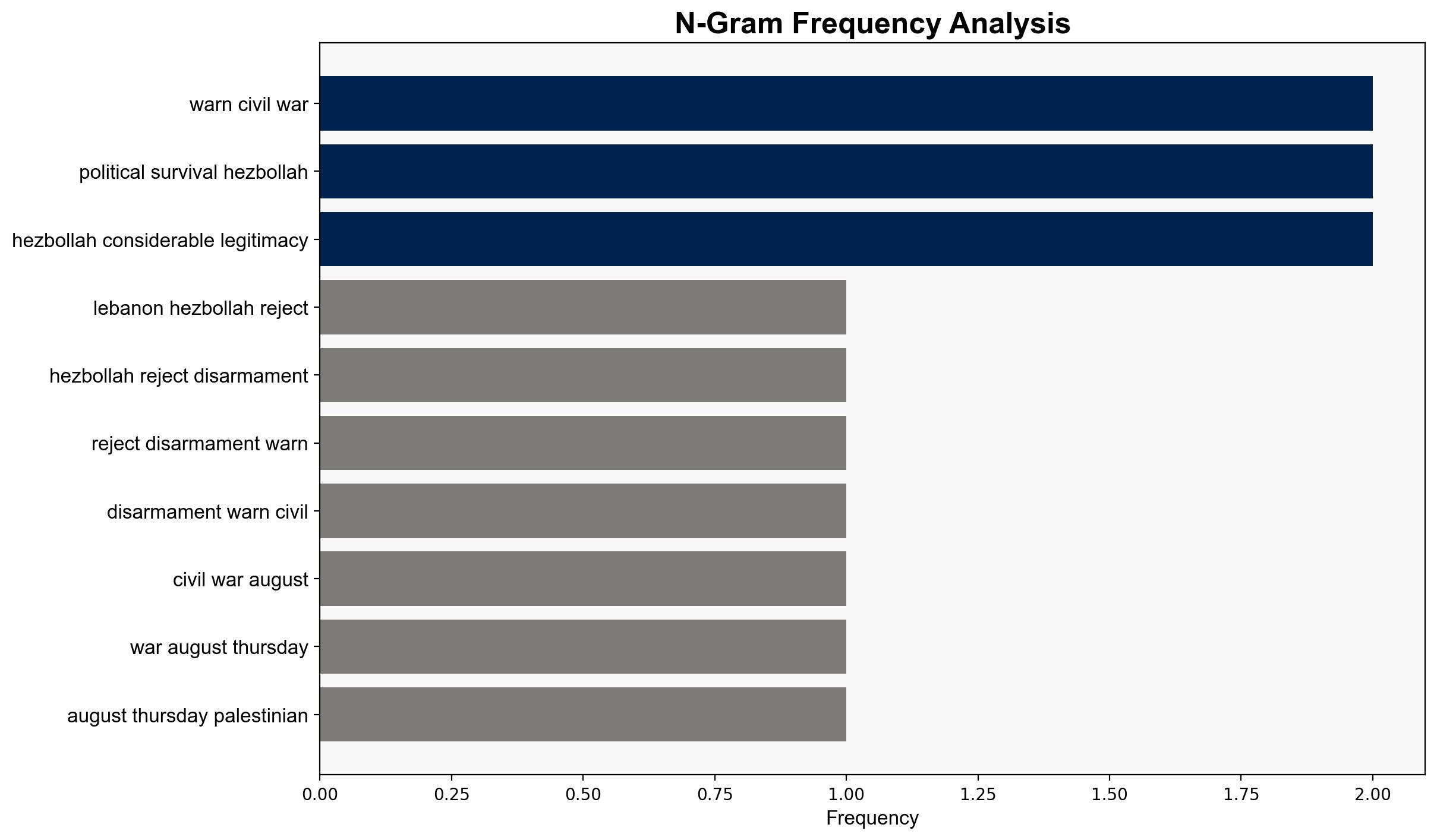Lebanon’s Hezbollah rejects disarmament warns of civil war – DW (English)
Published on: 2025-08-22
Intelligence Report: Lebanon’s Hezbollah rejects disarmament warns of civil war – DW (English)
1. BLUF (Bottom Line Up Front)
Hezbollah’s rejection of disarmament and warning of civil war highlights a critical impasse in Lebanon’s stability. The most supported hypothesis suggests Hezbollah’s stance is primarily a strategic maneuver to maintain political leverage and deter external pressures. Confidence level: Moderate. Recommended action: Initiate multilateral diplomatic engagement involving key regional stakeholders to address underlying security concerns and prevent escalation.
2. Competing Hypotheses
1. **Hezbollah’s Rejection as a Strategic Maneuver**: Hezbollah’s refusal to disarm is a calculated strategy to maintain its political influence and military capabilities in Lebanon, leveraging the threat of civil war to deter external and internal pressures.
2. **Hezbollah’s Genuine Security Concerns**: Hezbollah’s stance is driven by legitimate security concerns, primarily due to perceived threats from Israel and the need to protect Lebanon’s territorial integrity, thus making disarmament untenable.
Using ACH 2.0, the first hypothesis is better supported by Hezbollah’s historical use of military strength as a political tool and its current weakened state due to loss of international support and internal challenges.
3. Key Assumptions and Red Flags
– **Assumptions**: The analysis assumes Hezbollah’s primary motivation is political survival rather than genuine security concerns. It also presumes that regional dynamics, particularly Iran’s influence, are pivotal in Hezbollah’s decision-making.
– **Red Flags**: Potential bias in underestimating Hezbollah’s security concerns. The lack of direct evidence on Hezbollah’s internal deliberations and the potential over-reliance on external narratives are significant blind spots.
4. Implications and Strategic Risks
– **Escalation Risks**: Continued refusal to disarm could lead to heightened tensions with the Lebanese government and potential clashes, risking civil unrest.
– **Geopolitical Impact**: Increased instability in Lebanon could exacerbate regional tensions, particularly involving Israel and Iran, potentially drawing in international actors.
– **Economic Consequences**: Prolonged instability may deter foreign investment and exacerbate Lebanon’s economic crisis, further destabilizing the region.
5. Recommendations and Outlook
- Engage in diplomatic efforts to facilitate dialogue between Hezbollah, the Lebanese government, and international stakeholders to address security concerns and explore phased disarmament.
- Scenario Projections:
- Best Case: Successful diplomatic engagement leads to a phased disarmament plan, reducing tensions.
- Worst Case: Escalation into armed conflict, destabilizing Lebanon and the broader region.
- Most Likely: Continued stalemate with sporadic tensions, maintaining the status quo.
6. Key Individuals and Entities
– Naim Kassem
– Hassan Nasrallah
– Mahmoud Abbas
– Joseph Aoun
– Ali Larijani
7. Thematic Tags
national security threats, regional stability, geopolitical tensions, disarmament negotiations




